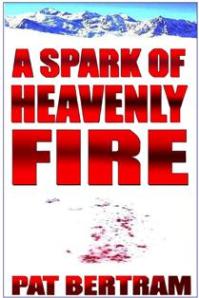At this time year, how can you not
help but reflect on the past twelve months and ponder where you’d like to be
twelve months from now? For me, the year was more challenging than most, but in
a good way, one that I created. In 2014, I learned how to juggle a full-time
day job with publisher deadlines, promotion, bookselling events, and more
writing. It was quite a juggling act but I survived. By doing so, I answered a
question I’d been asking myself for a long time. Did I have the energy, drive
and management skills to incorporate a nine-to-five job with my writing life?
The answer is yes, but not without obstacles, days of sheer exhaustion,
and lowered productivity. This year, I’m aiming for a long-term, part-time job in what I hope will be a perfect balance.
One of the things I kept up with in 2014
was to read my favorite blogs, one of which is Kristine Kathryn Rusch’s and the
other is Russell Blake’s. Rusch wrote a fascinating piece reviewing 2014.
Blake’s lastest blog makes some interesting predictions for 2015, referring to
events that occurred this year. Both of them agree that 2015 will be harder for
writers to earn a living for numerous reasons. You can read their blogs to
understand why but the two things that jumped out at me were the introduction
of Amazon’s Kindle Unlimited program in the summer (which has ultimately slashed most writers’ incomes) and that traditional publishers are finally learning how to compete with indie
publishers by lowering the price of ebooks.
Here’s the other thing: change is a constant
in the publishing/bookselling industry. Authors have changed publishing
strategies, booksellers like Amazon are changing selling strategies, and
readers are changing book buying habits. The giveaways and $.99 price points
that worked in 2011 and 2012 don’t work nearly as well for indie authors. As
Blake points out, better author branding will be essential for authors to
succeed. And as Rusch points out, writing, publishing, selling, and staying
successful is so hard that she calls 2014 the year of the quitter. Rusch says that
a growing number of writers are no longer in the biz for a variety of reasons
which she lists in her blog. Although Blake also notes that 2015 will be harder
than the previous year for many authors to earn a living, he still finds this
an exciting time to be a writer. I couldn’t agree more.
Yes, more change is coming. I can feel it
in the wind in my own writing/publishing/selling life. But does it frighten me?
Hell, no. It’s absolutely invigorating!
Until next year,
All the best,











